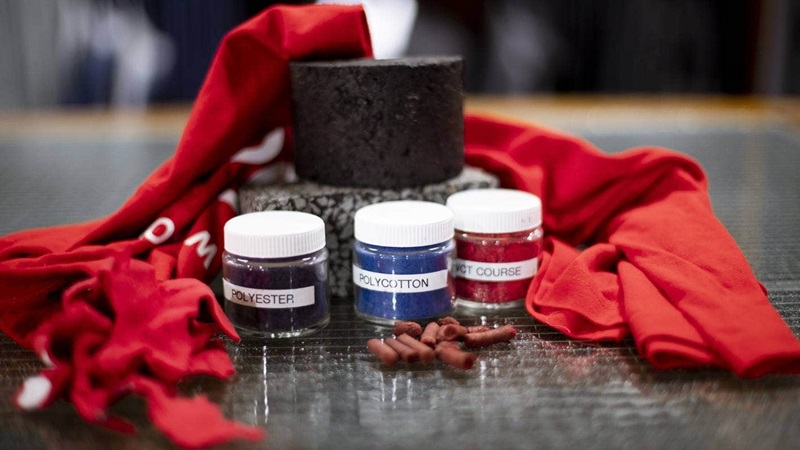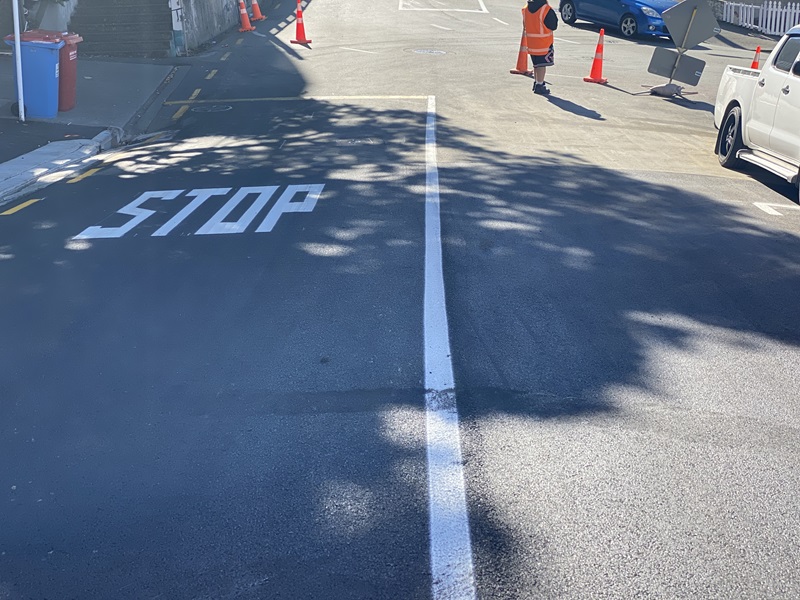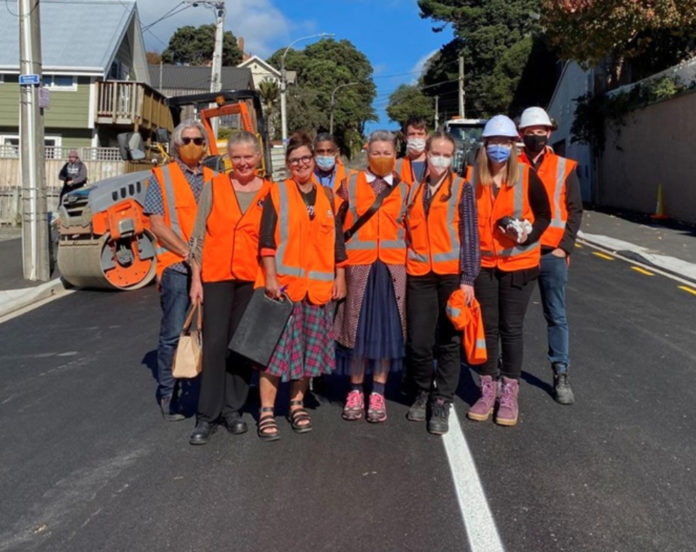Wellington City Council has begun a trial using textiles as a performance additive in asphalt on local roads in what is a first for New Zealand.
The Council-led trial, in partnership with Usedfully®, Scion and Fulton Hogan, is designed to create a circular economy system to reuse the untapped resource of unwanted clothing and textiles.
Textile waste is one of New Zealand’s fastest growing waste streams, with their outsized impact relative to weight making them an ideal focus for carbon reduction activities.
Improving the performance of our roads, creating jobs and economic opportunity onshore while also reducing waste and emissions is a win-win-win scenario, says Wellington Mayor, Andy Foster.
“We’re supporting organisations, projects and initiatives that reflect a circular economy as part of our Te Atakura – First to Zero goal and our strong ambition to reduce our collective footprint on the planet,” the Mayor said.
“This trial is a perfect example of cross collaboration and stewardship focused on improving sustainability for future generations.
“We’re proud to support Usedfully in this leading-edge work, which we hope will have applications to make a difference across New Zealand and then globally.”
The Terrace between Ghuznee and Buller Streets will be the first section of road trialled with the new product. It’ll be laid with ‘Strength-Tex’ which incorporates 500kgs (half a tonne) of used textiles, conserving approximately 11,725kgs C02e (carbon equivalent) and 568,500 litres H20 (water).

Council says reusing the fibres in roading will reduce the country’s reliance on imported products and improve the performance of the nation’s roads.
Diverting New Zealand’s textile from landfills could also result in potential greenhouse gas emissions reduction of 400,000 t CO2e a year.
“Strength-Tex is the first of a number of industrial scale solutions we have developed from unwanted textiles,” says CEO of Usedfully, Peter Thompson.
“It not only provides a fit for purpose product for our roads and construction industry, it also supports organisations to take action on climate change by diverting their unwanted textiles from waste into local, real-world solutions.
“The success of this initiative is down to the expertise and enthusiasm of each of the partners involved, and also thanks to the support of Waka Kotahi and the Ministry for the Environment.”

This unique cross-sector collaboration is accelerating New Zealand’s transition to a low-carbon, circular economy, says Councillor Laurie Foon.
“We are hearing more and more about the circular economy and how it is a crucial component in future sustainability and protecting the environment, and our residents are demanding this sort of action from us and Central Government.”
“The circular economy model lengthens the timeframe of products by reusing them, repurposing them, and building on their lifecycle. This trial ticks all those boxes, and we look forward to hearing the results, and this innovative approach becoming the norm not an anomaly.”
Organisations wanting to connect their unwanted textiles and clothing with these solutions can order a textile audit with Usedfully or become a partner in the Textile Reuse Programme.



